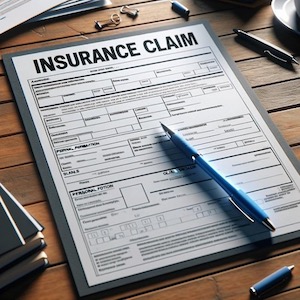FAQs About Greenville Workers' Compensation Claims
- Injured at Work in Greenville, NC?
- What Are Some Common Work Injuries Covered by North Carolina Workers’ Compensation?
- Does My Work Injury Qualify for Workers' Comp in Greenville?
- What Happens if I Was Denied Workers’ Compensation Benefits in NC?
- How Long Do I Have To File a Workers’ Compensation Claim in North Carolina?
- What if My Initial Workers’ Compensation Claim Is Denied?
- Can I Get Paid While I Recover From a Work Injury in NC?
- Does Workers’ Compensation Cover My Medical Bills in North Carolina?
- Are There Other Costs Covered by Workers’ Comp Related to Medical Care?
- What Happens if I Disagree With a Decision About My Medical Care or Bills?
- Can I Get Workers’ Compensation if I Have a Pre-Existing Condition?
- What if the Insurance Company Denies My Claim Due to a Pre-Existing Condition?
- When Can I Return to Work After a Work Injury?
- What if I Can’t Return to My Previous Job Due to My Injury?
- Can I Be Fired for Getting Injured at Work?
- What if My Employer Offers Me a Light-Duty Job While I Recover?
- What Happens if I Return to Work and Experience a Setback in My Recovery?
- Can I Sue My Employer if I Get Hurt at Work in North Carolina?
 If you've been injured on the job in Greenville, North Carolina, you may be entitled to benefits under the state's Workers' Compensation Act. This law provides financial assistance and medical care to employees who suffer work-related injuries or illnesses. Understanding your rights and the process involved can be crucial to ensure you receive the full benefits you deserve.
If you've been injured on the job in Greenville, North Carolina, you may be entitled to benefits under the state's Workers' Compensation Act. This law provides financial assistance and medical care to employees who suffer work-related injuries or illnesses. Understanding your rights and the process involved can be crucial to ensure you receive the full benefits you deserve.
It’s important to remember that every case is unique. Consulting with a Greenville workers' compensation lawyer can help you navigate the specific details of your situation and determine the best course of action.
The North Carolina Workers' Compensation Act protects employees who suffer work-related injuries and illnesses. Here are some of the most frequent types of workplace injuries covered by workers' compensation:
- Musculoskeletal Injuries: These are common and often caused by repetitive motions, overexertion, or lifting heavy objects. Examples include back pain, carpal tunnel syndrome, sprains, strains, and torn ligaments.
- Slip and Fall Accidents: Falls from heights, slips on wet surfaces, or uneven terrain can lead to broken bones, head injuries, and other serious consequences. Workers' compensation covers falls that occur on the job.
- Work-Related Vehicle Accidents: If you're in an accident while driving for work (company vehicles, deliveries, job sites), you may be eligible for workers' compensation regardless of fault.
- Exposure to Hazardous Materials: Workers in certain industries exposed to harmful chemicals, toxins, or hazardous materials can develop long-term health problems. Workers' compensation covers illnesses and injuries resulting from such exposure.
- Repetitive Stress Injuries (RSIs): Jobs requiring prolonged computer use, forceful gripping, or awkward postures can lead to RSIs like carpal tunnel syndrome, tendinitis, and bursitis. These can cause significant pain and limitations, making them eligible for workers' compensation benefits.
This list is not exhaustive. If you're unsure if your specific injury is covered, consulting with a Greenville workers' compensation lawyer can help determine your eligibility for benefits.
It’s OK if you’re uncertain if your work injury falls under North Carolina's Workers' Compensation Act. Here's how to determine if you might have a case:
- Did the injury occur "in the course of employment"? This means the injury happened while performing your work duties or during work hours at your designated workplace, or while traveling for work purposes.
- Did the injury arise "out of employment"? Your injury must be directly related to your job duties or work environment. For instance, a slip and fall on the way to the bathroom at work may qualify, while an injury sustained playing a pick-up basketball game during your lunch break might not.
- Did the injury result in a medical condition requiring treatment? Workers' compensation covers injuries that necessitate medical attention. It's important to seek medical care promptly after a work injury to document and connect the incident to your employment.
Even if you're unsure about the exact details, it's a good idea to consult with a Greenville workers' compensation lawyer. We can assess your specific situation and advise you on your eligibility for benefits. Remember, there's no upfront cost for an initial consultation, and a lawyer can help you navigate the complexities of the workers' compensation system.
Facing a denial of your workers' compensation claim in North Carolina can be frustrating and leave you feeling uncertain. Here's what you should do if your initial claim is denied:
- Request a Hearing: You have the right to appeal the denial by requesting a hearing with the Deputy Commissioner of the North Carolina Industrial Commission (NCIC). This process typically involves filing a form called a "Request for Hearing" within 30 days of receiving the denial letter.
- Gather Evidence: While the insurance company may have denied your claim, you may be able to strengthen your case for the hearing by gathering medical records documenting your injury, witness statements from the accident, or accident reports.
- Consult a Greenville Workers' Compensation Lawyer: An experienced lawyer can guide you through the appeals process, represent you at the hearing, and protect your rights. We can help gather additional evidence and fight for the Workers Comp benefits you deserve.
- Understand the Hearing Process: A workers' compensation hearing can be complex. A lawyer can explain the process, prepare you for what to expect, and present your case before the Deputy Commissioner consistent with the North Carolina rules and protocols.
Remember, deadlines can be crucial in workers' compensation cases. Don't delay in seeking legal counsel and initiating the appeal process after a denial. A Greenville workers' compensation lawyer can help you navigate this challenging situation.
In North Carolina, you generally have two years from the date of your work injury to file a formal claim with the North Carolina Industrial Commission (NCIC). There can be exceptions, so consulting with a Greenville workers' compensation lawyer is recommended to make sure you meet the appropriate filing deadline for your specific case.
If your initial claim is denied, you ordinarily have 30 days from receiving the denial letter to request a hearing with the NCIC Deputy Commissioner. This initiates the appeals process. Don't delay in seeking legal counsel after a denial to optimize your chances of a successful outcome.
The North Carolina Workers' Compensation Law provides temporary disability benefits to eligible employees who cannot work due to a work-related injury or illness. These benefits help replace a portion of your lost wages while you focus on healing and recovery.
Here's a breakdown of temporary disability benefits in NC:
- Eligibility: To qualify, your injury must prevent you from performing your regular job duties and require medical attention. The doctor treating your work injury will typically determine your work restrictions and estimated recovery time.
- Benefit Amount: Temporary disability benefits are calculated as two-thirds of your average weekly wage, capped by a maximum amount set by North Carolina law.
- Waiting Period: Benefits generally begin after a seven-day waiting period. However, if your disability extends beyond 21 days, you may be eligible for retroactive pay for the first seven days.
It's important to note:
- You are required to attend all doctor appointments scheduled by the authorized workers' compensation physician.
- You may be eligible for vocational rehabilitation services to help you return to work in a suitable capacity if your injury prevents you from resuming your previous job duties.
Consulting with a Greenville workers' compensation lawyer can help ensure you understand your rights and navigate the process of obtaining temporary disability benefits. They can assist you in gathering the necessary documentation and advocate for the full benefits you deserve during your recovery.
 Workers' compensation covers the medical costs associated with your work-related injury or illness. Here's a breakdown of what you need to know:
Workers' compensation covers the medical costs associated with your work-related injury or illness. Here's a breakdown of what you need to know:
- Authorized Treatment: You must see a healthcare provider authorized by the NC Workers' Compensation Commission (NCIC). Your employer or insurance company will typically provide a list of approved physicians.
- Pre-Approval for Treatment: In some cases, you might need pre-approval from the insurance company for certain procedures. A lawyer can advise you on this.
- Medical Bills: The workers' compensation insurance carrier is responsible for paying all authorized medical bills related to your work injury. This includes doctor visits, hospital stays, medications, and physical therapy.
- Keep Receipts: Hold onto receipts for any out-of-pocket medical expenses in case they need to be reimbursed later.
Yes. Workers' compensation may also cover travel costs associated with obtaining authorized medical treatment for your work injury.
If you disagree with a decision by the insurance company, you may have the right to appeal. A Greenville workers' compensation lawyer can guide you through this process.
Consulting with a lawyer can help ensure you understand your rights regarding medical care and advocate for proper compensation.
North Carolina law protects workers even if they had a pre-existing condition before their work injury. The key factor is whether your work injury aggravated the pre-existing condition.
Here's what this means:
- If your work activities worsened your pre-existing condition, you may be eligible for benefits. For example, if you had chronic back pain, and a work injury caused a disc herniation, you may be eligible to file a claim.
- If your pre-existing condition remained unchanged due to the workplace incident, ordinarily that wouldn't be covered under workers' compensation.
Insurance companies may try to deny claims involving pre-existing conditions. Don't be discouraged! A Greenville workers' compensation lawyer can help you fight the denial and advocate for the benefits you deserve.
Remember: A pre-existing condition does not necessarily prevent you from filing a claim. Consult with a lawyer to understand your eligibility and explore your options for securing the compensation you're entitled to under North Carolina's Workers' Compensation Act.
Your doctor, as authorized by the NC Workers' Compensation Commission (NCIC), will ordinarily determine your recovery timeline and work restrictions. They'll advise when it's safe for you to return to work, either in your full capacity or with limitations.
Workers' compensation in North Carolina may offer vocational rehabilitation services to help you develop skills for a new job that accommodates your limitations. A lawyer can advise you on this process.
North Carolina law protects workers from termination due to a work-related injury. However, there are some exceptions, so consulting with a lawyer is recommended if you face job loss after an injury.
You are generally obligated to attempt light-duty work offered by your employer if your doctor approves it. Refusing suitable work may affect your eligibility for temporary disability benefits. A lawyer can help you navigate this situation.
If your injury worsens after returning to work, you may be entitled to additional benefits. Report the setback to your doctor and employer immediately, and consult with your lawyer to discuss your options.
Remember: Communication is key. Keep your doctor and employer informed about your recovery progress and any limitations you face. Consulting with a Greenville workers' compensation lawyer can help ensure you understand your rights and navigate the return-to-work process smoothly. Lawyers work to protect your benefits and optimize your chances of a successful recovery.
 In general, you cannot directly sue your employer in North Carolina if you get hurt at work. This is because North Carolina operates under an exclusive remedy system for workers' compensation. This means:
In general, you cannot directly sue your employer in North Carolina if you get hurt at work. This is because North Carolina operates under an exclusive remedy system for workers' compensation. This means:
- Workers' compensation is your primary source of benefits: If you suffer a work injury, you are required to file a claim for workers' compensation benefits instead of suing your employer. Workers' compensation provides medical coverage and wage replacement benefits while you recover.
- Exceptions exist: There are limited exceptions where you might be able to sue your employer outside the workers' compensation system. These exceptions typically involve:
- Intentional Acts: If your employer intentionally caused your injury, you may have grounds for a lawsuit.
- Employer Doesn't Have Workers' Compensation Insurance: In rare cases, some employers might not carry mandatory workers' compensation insurance. In such situations, you may be able to sue them directly for damages.
- Third-Party Liability: If a third party other than your employer contributed to your injury (e.g., a faulty product from another company), you might have a separate lawsuit against that third party.
Important Note: Consulting with a Greenville workers' compensation lawyer is a good idea. They can analyze the specifics of your case and determine if any exceptions apply, allowing you to pursue legal action beyond workers' compensation when legally and/or factually appropriate.
Here's why a lawyer is valuable:
- Understanding Complexities: Workers' compensation laws can be intricate. A lawyer can help ensure you understand your rights and explore the potential options available to you.
- Third-Party Claims: If a third party is involved, a lawyer can investigate their role in your injury and potentially file a separate lawsuit to recover additional compensation.
While suing your employer directly is generally not an option in North Carolina for work injuries, there might be other avenues for pursuing compensation. Consulting with a Greenville workers' compensation lawyer is advisable to understand your rights and explore the possibility of a successful outcome.
Need Helpful Information About Workers Comp Claims in Greenville NC?
- What you need to know about Workers’ Compensation in North Carolina
- How to make a Claim for an On The Job Injury
- Can you trust the Company Doctor?
- What happens if my boss is pressuring me to return to work?
- How much is my Comp Claim worth?
- What does “Suitable Employment” mean?
- What happens in amputation cases?
- Does Negligence matter?
- Asbestos Exposure and Comp Claims in North Carolina
- Am I required to give them all my medical records?
- The North Carolina Workers’ Compensation Act
 Dodge Jones Injury Law Firm Home
Dodge Jones Injury Law Firm Home








